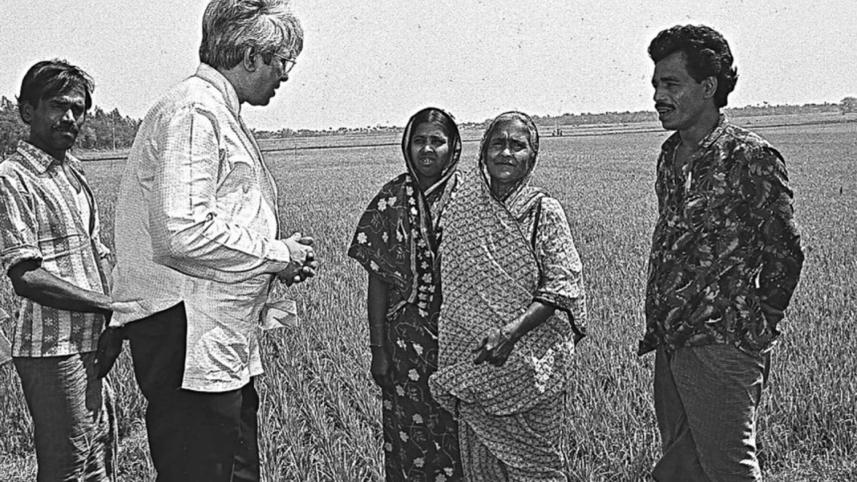A people’s organisation for 50 years

We congratulate Brac on its 50 years of operations in Bangladesh. Founded on March 21, 1972, by the late Sir Fazle Hasan Abed, Brac's journey started from the very birth of Bangladesh, with a rehabilitation programme for people trying to recover from the ravages of war. Soon, the organisation expanded its mission to help people in the remotest areas to create livelihood opportunities for themselves.
What truly sets Brac apart is its intense engagement at the grassroots level—not only in Bangladesh but in other countries too. For five decades, Brac has been working to help people in the farthest corners of the nation in building their lives from scratch—be it through employment, providing microfinance to vulnerable families, creating awareness about health issues in rural Bangladesh, or by educating millions of adults and children across Asia and Africa.
Education, in fact, has been at the core of Brac's mission. At the time when Bangladesh was born, 80 percent of adult Bangladeshis could not read or write, which prompted the organisation to launch its literacy and adult education campaign. Brac's innovative non-formal primary education (NFPE) programme has equipped over a million children aged 8 to 14 years (most of them girls) with literacy and numeracy skills to prepare them for secondary school. Though discontinued due to a lack of funds from bilateral and multilateral contributors, its proven success is a rationale for its revival as a partnership between Brac, other education NGOs, and the government to meet the SDG4 education target. The establishment of Brac University in 2001 has provided quality higher education and opportunities for research.
Since 1979, Brac has also worked extensively to improve the health of people in the country's rural areas. From leading the vaccination of children against diseases, which drastically reduced the previously high child mortality rate—with assistance from government and CARE—to providing life-saving oral saline to tens of thousands of households, Brac's contribution to our healthcare has been unique.
Keeping women and the poor at the centre of all developmental activities, Brac has introduced innumerable innovative strategies to lift people from poverty and ill health, equipping them with the tools to help them lead better lives. We hope Brac continues the legacy of its founder Sir Fazle Abed and plays its crucial role in the country's overall development.



 For all latest news, follow The Daily Star's Google News channel.
For all latest news, follow The Daily Star's Google News channel.
Comments